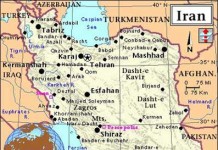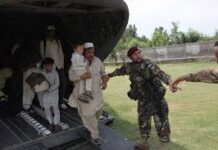Context
 As Afghan Taliban political office in Doha becomes a reality, contradictory narrative is emerging on the future of TTP. While the new government in Pakistan has backed negotiations with TTP, the death of its key deputy Wali-ur-Rehman in a drone strike has had the opposite impact. This does not mean that attempts at reconciliation have stopped altogether.
As Afghan Taliban political office in Doha becomes a reality, contradictory narrative is emerging on the future of TTP. While the new government in Pakistan has backed negotiations with TTP, the death of its key deputy Wali-ur-Rehman in a drone strike has had the opposite impact. This does not mean that attempts at reconciliation have stopped altogether.
TTP Spokesperson Ehsanullah Ehsan commented on June 25th, “We accept all decisions taken by Afghan Taliban as we are their part.” TTP also welcomed the opening of Afghan Taliban office in Doha.
There are also reports that a track-two approach is being attempted to narrow the differences between TTP and Pakistan, and the help of Afghan Taliban is being sought to facilitate. For this purpose, Mowlana Sami-ul-Haq, Mowlana Fazl-ur-Rehman, and Hafiz Tahir Ashrafi are spearheading the efforts from Pakistan’s side.
On the other hand, recent media reports suggest that TTP safe havens located in Kunar and Nangarhar have come under attack from Lashkare Toyyiba (LeT), Ansar ul Islam, and other local Pakistan based tribal militias. Moreover, TTP is seeking the mediation of Afghan Taliban to avert further clashes.
This development contradicts the western held position of collusion between AQ, Afghan Taliban, TTP, India oriented jihadists (LeT), and other sectarian groups (LeJ) that are a source of havoc in Balochistan, Karachi and Khyber Pakhtunkhwa. Even if they did in the past (Shura-e-Murakeba), it no longer seems to be true. This indicates the American strategy to wean off AQ from its regional affiliates in the region is working, obviously with Pakistan’s assistance.
Analysis
Nonetheless, these reports put Afghan Taliban in a more influential role than is generally perceived. At the same time, it diminishes the leverage Karzai has increasingly signaled to have. Furthermore, the message for TTP is that they can either accept peace talks with Pakistan or face attacks of the kind described above. Simultaneously applying military and political tactics appears to be an approach of choice, being adopted by all relevant stakeholders.
The opening of the Doha office, however, has made India and Russia especially worried. They are interpreting the American willingness to tolerate Islamic militant groups once more as an ominous sign. Particularly, when events of Syria appear to back such a premise. John Kerry was seen negating any such perception during his recent visit to India, where he backed a stronger role for India in Afghanistan.



